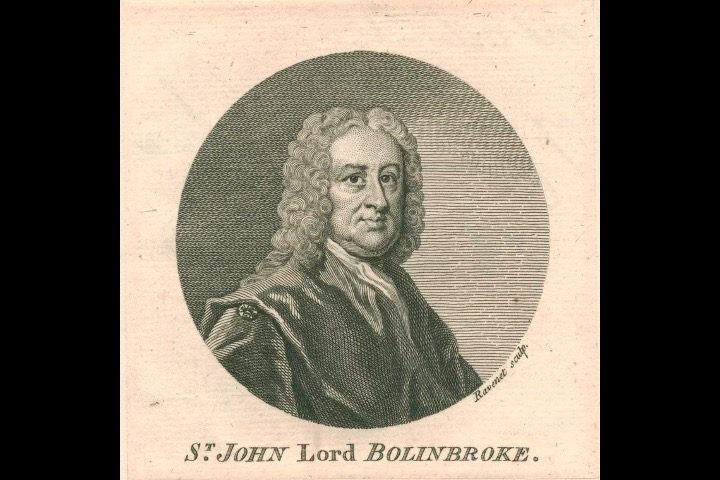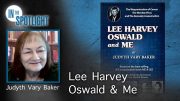
“The shortest and surest way of arriving at real knowledge is to unlearn the lessons we have been taught, to mount the first principles, and take nobody’s word about them.”
In the annals of constitutional history, Henry St. John, Lord Bolingbroke, stands as a prominent figure who embodied the spirit of conservatism during the Enlightenment era. Born on September 16, 1678, Bolingbroke’s life was marked by a relentless pursuit of political and philosophical ideas that would shape the course of British and American history. This biography delves into the life and legacy of a man whose ideas continue to influence conservative thought today.
Early Life and Education
Henry St. John was born into an aristocratic family in Battersea, England. His upbringing was marked by privilege and an education befitting his social status. He attended Eton College, where he excelled in his studies, displaying an early affinity for classical literature and political philosophy. Bolingbroke’s education laid the foundation for his later intellectual pursuits.
Political Ascendancy
Bolingbroke’s political career began in earnest in the early 18th century, when he was elected as a member of Parliament for the Whig party. His eloquence and sharp wit quickly earned him a reputation as a formidable orator and political thinker. However, Bolingbroke’s political journey took a significant turn when he aligned himself with the Tories, a move that would define his lifelong commitment to conservative principles.
Queen Anne’s Reign
During the reign of Queen Anne, Bolingbroke’s star continued to rise. He was appointed as Secretary of State for War in 1704, followed by his appointment as Secretary of State for the Northern Department in 1708. His tenure was marked by a commitment to strengthening the monarchy and preserving the traditional institutions of Britain.
The Treaty of Utrecht
One of Bolingbroke’s most significant achievements was his role in negotiating the Treaty of Utrecht in 1713, which ended the War of the Spanish Succession. This treaty not only secured peace in Europe but also marked the height of Bolingbroke’s political influence. His diplomatic skills and unwavering commitment to British interests earned him the title of Lord Bolingbroke.
Exile and Return
Bolingbroke’s meteoric rise in politics was followed by a sudden fall from grace. In 1714, Queen Anne passed away, and the Hanoverian dynasty ascended to the British throne. As a staunch Tory and supporter of the Stuart cause, Bolingbroke found himself in exile. He spent several years in France, where he continued to write and reflect on political philosophy. His writings from this period, including “The Idea of a Patriot King,” laid the groundwork for many conservative ideas that would later influence the American Founding Fathers.
Return to England
Bolingbroke was granted a pardon and allowed to return to England in 1725. He spent his later years immersed in philosophical and political debates, engaging in spirited exchanges with leading thinkers of his time, including Alexander Pope and Jonathan Swift. His commitment to preserving traditional institutions and defending the prerogatives of the monarchy remained unwavering.
Legacy
Henry St. John, Lord Bolingbroke, left an enduring legacy in the realm of conservative political thought. His emphasis on the importance of tradition, the preservation of institutions, and the virtues of a strong monarchy continue to resonate with conservative thinkers today. Bolingbroke’s writings, including his “Letters on the Study and Use of History,” remain influential in shaping conservative discourse on the importance of history in understanding the present.
In the tumultuous political landscape of the early 18th century, Henry St. John, Lord Bolingbroke, stood as a steadfast defender of conservative principles. His commitment to preserving tradition, upholding the monarchy, and engaging in thoughtful discourse left an indelible mark on the world of political philosophy. Today, as conservative ideas continue to evolve and adapt to contemporary challenges, Bolingbroke’s legacy endures as a testament to the enduring relevance of conservative thought in shaping the course of history.
Influence on the Founding Fathers
The Enlightenment era was a crucible of ideas, where great thinkers and philosophers forged the intellectual foundations of modern democracy. Among these luminaries, one name often overlooked in American history textbooks is Henry St. John, Lord Bolingbroke. Though a British statesman and philosopher, Lord Bolingbroke’s ideas left an indelible mark on the minds of America’s Founding Fathers.
Bolingbroke’s writings, particularly his work “The Idea of a Patriot King,” resonated deeply with the likes of Thomas Jefferson, John Adams, and Benjamin Franklin. In this seminal work, Bolingbroke championed the idea of a monarch who ruled not by divine right but by the consent of the governed — a radical notion at the time. This concept laid the groundwork for the Founding Fathers’ conviction that government should derive its power from the people, a principle that would be enshrined in the Declaration of Independence and the United States Constitution.
Furthermore, Bolingbroke’s emphasis on the importance of civic virtue and an educated citizenry struck a chord with America’s fledgling leaders. They recognized the need for an enlightened and engaged populace to sustain the experiment in self-governance. Bolingbroke’s ideas on the importance of civic education and moral virtue directly influenced the educational initiatives and moral rhetoric of the Founding Fathers.
In his “Letters on the Study and Use of History,” Bolingbroke stressed the importance of studying history to avoid repeating past mistakes. This resonated with the Founding Fathers, who looked to history to guide them in crafting a government that would prevent tyranny and safeguard individual liberties.
One of the topics most frequently addressed by Bolingbroke was the relationship of liberty to virtue. It is the indispensable existence of the latter to the perpetuation of the former that leapt from the pages of ancient history as studied by Bolingbroke, and every one of our Founding Fathers was persuaded that there was no hope for a free society devoid of virtue.
Here are a few quotations from Bolingbroke on the concomitant appearance of liberty and virtue that were often repeated by our Founders:
Tranquillity of mind is the inseparable companion of virtue, that adds relish and savor to all the comforts, and takes off their bitter taste from all the misfortunes of life. It is the health of the mind. Without this, no intellectual joy can be tasted, as without the other no corporeal pleasure.
But true moral virtue is something very real. It is the cause of our happiness, it maintains the tranquillity of human life. If happiness be a series of agreeable sensations, the less this series is exposed to interruption, the more happy we are. But it must be exposed to perpetual interruptions, if that which causes and maintains it be not in our own power. Virtue is so: and thus virtue may be said, without any paradox, to be its own reward. If it has no reward from without, it rewards itself by inward, and therefore independent tranquillity.
Another subject often addressed by Bolingbroke and echoed in our own Founding documents is the need of a people to frequently restore their society to the foundations of liberty upon which it was established. Bolingbroke wrote:
By preserving this constitution inviolate, or by drawing it back to the principles on which it was originally founded, whenever it shall be made to swerve from them, we may secure to ourselves, and to our latest posterity, the possession of that liberty which we have so long enjoyed.
Isn’t it time we, as our Founding Fathers did, recognize that we have swerved from our founding principles, and begin working to draw our society back to the principles upon which it was originally founded?
Finally, Bolingbroke’s study of history revealed that there comes a time when people who prefer to be left alone and have little to do with the government will lose their patience when they see their lives, liberty, and property being destroyed by that government. In words that sound similar to Jefferson’s language in the Declaration of Independence, and that are extraordinarily timely, Bolingbroke warned:
A people may be persuaded to bear patiently a great deal of oppression, as long as they can be persuaded that they bear it only to defend their own choice and to maintain their own acts; but if they discover this to be nothing more than a pretense, by which such powers are kept up as are unnecessary to their security, and dangerous to their liberty, by which the wealth of the whole nation is drained into the coffers of a few, and by which, in one word, they become exposed to ruin by the very means which they took to avoid it, it cannot be expected that they will be patient very long.
In conclusion, while Henry St. John, Lord Bolingbroke, may not be a household name in American history, his ideas were instrumental in shaping the philosophical underpinnings of the American Revolution and the subsequent formation of the United States. His advocacy for government by consent, civic virtue, and a deep understanding of history provided the intellectual scaffolding upon which the Founding Fathers built the framework of American democracy. In recognizing Bolingbroke’s influence, we gain a deeper appreciation of the Enlightenment’s profound impact on the birth of the United States.



